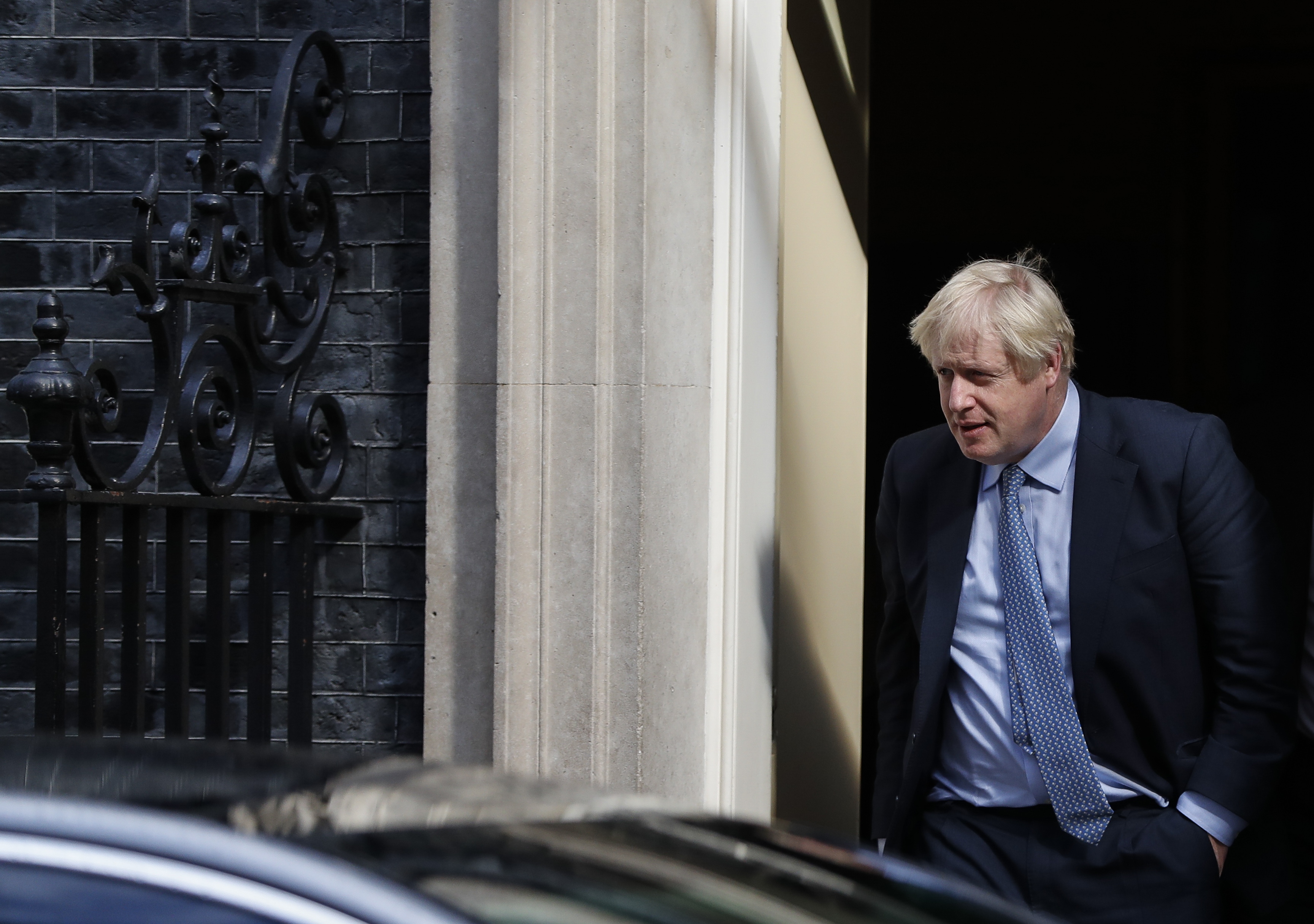Boris Johnson on the ropes
- By Heiko Khoo
 0 Comment(s)
0 Comment(s) Print
Print E-mail China.org.cn, September 9, 2019
E-mail China.org.cn, September 9, 2019

Once again British politics is being played out on a high wire, and Prime Minister Boris Johnson is crossing it with no net below. And like every circus performer, he must look straight ahead, convinced he will reach the other side – a moment of doubt could be his downfall.
The starting point for this perilous performance was his election as leader of the Conservatives (Tories), the oldest political party in the world.
Johnson's objective is to force through Britain's departure from the EU, with or without a deal, in time for Halloween – "do or die" as he says. To overcome parliamentary resistance, the government restricted the time available for debate by getting the Queen to announce the proroguing (suspension) of parliament.
In response, on Sept. 3, a total of 21 members of his party in the House of Commons joined the opposition to take control of parliamentary proceedings, defeating the government by 328 to 301. These "rebels" who were quickly expelled from the party included 20 former ministers including the longest serving Tory MP Ken Clarke, and Nicholas Soames, grandson of Winston Churchill.
This illustrates the depth of the civil war raging within the Conservative Party. Clarke and Soames claim they represent Tory historical traditions and that Johnson is effectively transforming the party into a copy of the right-wing Brexit Party led by Nigel Farage, which doesn't even have a single member in parliament yet.
The following day, the government was again defeated when MPs voted by 329 to 320 to block Johnson's actions by forcing him to get a deal with the EU, or to secure a majority to leave without a deal.
In reality this means Johnson will have to request an extension to the Brexit deadline until January 31, 2020. On Friday, the unelected House of Lords, full of EU supporters, approved the legislation, which will receive final royal assent on Monday.
Johnson had wanted to call a general election where he would posture as the voice of the people against parliament. However, since 2010 the Fixed-Term Parliaments Act requires that at least two-thirds of the 650 MPs in the House of Commons must agree to any election called outside the fixed give-year term.
Johnson's team have consistently indicated that they will not adhere to the usual constitutional niceties, and opposition MPs believed he might try to force a no-deal Brexit through by hook or by crook, even while an election process is taking place.
Therefore, the opposition Labour Party abstained on Johnson's call for an election on October 15, so his motion to call a General Election was defeated. Johnson will make another attempt to get his way on Monday, but the opposition parties have now united to ensure this will fail.
To get his way, the final possibility for Johnson might be to try to introduce a short bill to overturn the fixed term parliament act, so as to be able to call an election with a simple majority of MPs, but the numbers seem against him.
Behind Boris Johnson stands a would-be Machiavelli, his advisor-in-chief Dominic Cummings, who masterminded the successful Leave the EU referendum campaign in 2016.
His infamy as a guru of strategy and tactics is based on the awe that sections of the elite hold for the world of psychometric political data manipulation. Wild claims about the Cambridge Analytica scandal – when Facebook data was used to influence both the election of President Donald Trump in the U.S. and the Brexit vote – enhanced the belief that he who masters big data, controls modern politics. This reflects a wider sociological trend that endows Artificial Intelligence with magical powers.
In fact, it was the 2016 Brexit campaign by Nigel Farage, with very little data power at its disposal, that conjured up the votes of those enraged and seemingly forgotten communities who tipped the balance in the vote to leave the EU, a feat Farage repeated in the European Parliament elections in May 2019.
Of Dominic Cummings, the Tory MP Sir Roger James Gale told the BBC:
"If the PM doesn't have Dominic Cummings frog-marched out of Downing Street himself then the chances are it will not be the Tory rebels or [Labour leader] Jeremy Corbyn, but Mr. Cummings himself who will bring down this administration."
The aggressive approach proposed by Cummings, and adopted by Johnson as his own, was intended to show strength and single-minded purpose.
Having smashed any semblance of unity in the Tory Party in parliament in a matter of days, in order to steal the cloak of Farage, the strategy has united parliament against the government, and Johnson's gamble seems to be unravelling before our eyes.
Heiko Khoo is a columnist with China.org.cn. For more information please visit:
http://china.org.cn/opinion/heikokhoo.htm
Opinion articles reflect the views of their authors, not necessarily those of China.org.cn.
If you would like to contribute, please contact us at opinion@china.org.cn.





